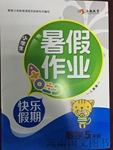题目内容
When I was in the third grade, I was picked to be the princess(公主)in the school play. For weeks my mother had helped me practice my lines. But once on stage, every word disappeared from my head. Then my teacher told me she had written a narrator’s(解说者的)part for the play, and asked me to change roles. Though I didn’t tell my mother what had happened that day, she sensed my unhappiness and asked if I wanted to take a walk in the yard.
It was a lovely spring day. We could see dandelions(蒲公英)popping(突然出现) through the grass in bunches, as if a painter had touched our landscape with bits of gold. I watched my mother carelessly bend down by one of the bunches. “I think I am going to dig up all these weeds,” she said. “From now on, we’ll have only roses in this garden.”
“But I like dandelions,” I protested. “All flowers are beautiful-even dandelions!”
My mother looked at me seriously. “Yes, every flower gives pleasure in its own way, doesn’t it?” She asked thoughtfully. I nodded. “And that is true of people, too,” she added.
When I realized that she had guessed my pain, I started to cry and told her the truth.
“But you will be a beautiful narrator,” she said, reminding me of how much I loved to read stories aloud to her.
Over the next few weeks, with her continuous encouragement, I learned to take pride in the role. The big day finally came. A few minutes before the play, my teacher came over to me. “Your mother asked me to give this to you,” she said, handing me a dandelion. After the play, I took home the flower, laughing that I was perhaps the only person who would keep such a weed(野草).
1.he girl did not play the role of the princess mainly because .
A. she felt nervous on the stage
B. she lost her interest in that role
C. she preferred the role of the narrator
D. she had difficulty memorizing her words
2.Why did the mother suggest a walk in the garden?
A. To remove the dandelions.
B. To enjoy the garden scene.
C. To have a talk with her daughter.
D. To help her daughter recite the words.
3.. What is the main idea of the story?
A. Everybody can find his or her own way to success.
B. Everybody has his or her own value in the world.
C. Everybody should learn to play different roles.
D. Everybody has some unforgettable memory.
1.A
2.C
3.B
【解析】
试题分析:文章通过妈妈教育女儿的一个故事告诉我们在这个世界上每个人都有自己存在的价值。
1.细节理解题。A 细节题。根据第一段2,3行But once on stage, every word disappeared from my head.我登上舞台就大脑一片空白,说明我很紧张。故A正确
2.细节理解题。推理题。根据文章第二段,说明妈妈带我去花园散步正是为了和我好好谈谈,消除我心中的痛苦和纠结,走出那阴影。故C正确
3.主旨判断题。B 主旨大意题。文章通过妈妈的解释every flower gives pleasure in its own way,that is true of people, too说明每朵花都能给别人带来快乐,人也一样。每个人都有自己存在的价值,故B正确。
考点:教育类短文

 永乾教育寒假作业快乐假期延边人民出版社系列答案
永乾教育寒假作业快乐假期延边人民出版社系列答案